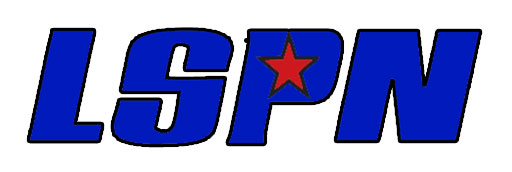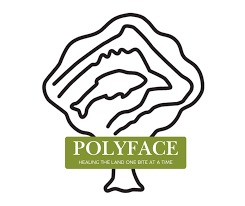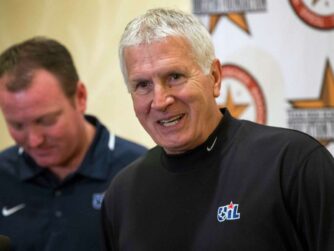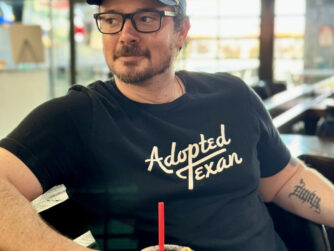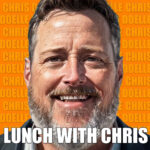
S04E04 – Joel Salatin
Join Chris as he talks with movers, shakers, news makers and just people he finds cool. Hear their unique and inspiring stories.
In this episode, Chris Doelle interviews Joel Salatin of Polyface Farms. Joel joins the show after some spring maintenance, enjoying restoring order from chaos by clearing brush from fences during the first grazing rotation. Polyface Farms has 250 acres of pasture requiring extensive fence work.
Joel grew up on the farm, influenced by his grandfather’s organic gardening and his father’s non-chemical approach, viewing chemical farming as a “drug addiction” cycle. His father, an accountant, was a visionary who in the 60s discovered electric fence, controlled grazing, mobile infrastructure, and the necessity of direct marketing to make a living on a small farm. Joel started his egg project at age 10, growing it through high school. After college, he worked off-farm for two and a half years, living very cheaply with his wife in the farmhouse attic, growing food, and saving money. He returned to the farm full-time, taking about three years before feeling secure. Their success on a small farm without inherited wealth became a compelling story. Today, Polyface Farms supports about 22 salaries.
Chris discovered Joel through raising chickens and the term “chicken tractor”. Joel explains his father was inspired by the revolutionary idea of mobile infrastructure, allowing animals flexibility and the ability to move, even on rented land. Portable rabbit runs built for his brother’s failed rabbit project were repurposed for Joel’s growing chicken enterprise, leading to the birth of pastured poultry.
The discussion turned to regenerative farming, defined as leaving the land better than you found it, improving soil, water, air, biodiversity, and production annually. Polyface uses nature as a template, emphasizing animals and their movement, requiring mobile infrastructure. They move cows and chickens daily for hygiene and discovery. Building soil is key through large-scale composting, famously using pigs (“pigarators”) to turn compost. These innovations mimic nature.
Soil health and water sequestration are crucial. Joel highlights organic matter as the soil’s “sponge”. Every 1% increase in organic matter holds 20,000 gallons of water per acre. Their farm has increased from 1% to over 8% organic matter, adding 140,000 gallons of water holding capacity per acre, which reduces flooding and increases drought resilience. Building soil organic matter supports vegetation, which releases bacteria needed for atmospheric condensation and rain, creating a positive feedback loop. The soil’s carbon bank is vital.
Polyface Farms does not grow crops like corn or soybeans, buying them GMO-free from neighbors. The farm was heavily cropped for almost 200 years, losing significant soil, leaving areas of bare rock in 1961. They rebuilt soil through composting, controlled grazing, and multi-speciation and won’t subject the land to the cropping that “killed it to death”.
For individuals with small plots or in the city, Joel stresses that everyone can do something. His book, Polyface Micro, details methods even for small spaces. For 1 acre or less, stationary systems are better to manage manure. He recommends stationary chicken setups with deep bedding (“carbonacious diaper”) for composting kitchen scraps and garden waste. Chickens are a “gateway” animal: they convert scraps to eggs, require less complex infrastructure than larger animals, and are easy to manage and butcher. Self-reliance is important. Gardening is also highly encouraged, even in small spots, with a preference for raised beds for ergonomics and pest/child management.
The importance of children interacting with nature and the garden is vital. Being surrounded by God-created things fosters humility, contrasts with man-made environments, and teaches that there’s something greater than ourselves. Disconnection leads to arrogance and a loss of common sense and stewardship. Visceral participation teaches about life and death – dead organic matter can be composted into the “circle of life”. Interacting with life cycles like planting seeds and waiting for crops or eggs teaches patience, building character and temperament.
Polyface Farms is a pasture-based livestock farm raising multiple species. Established in 1961, the Polyface name and brand were developed in 1982 to scale the homestead experiments. They manage significant numbers of cattle, hogs, and chickens. They do not vaccinate, medicate, or use chemical fertilizer. The name “Polyface” means “Many Face,” chosen after “Interface” was denied, to represent the mission and be bigger than just “Salatin Incorporated”.
To learn more, visit their comprehensive website: polyfacefarms.com. The site includes information on food sales, tours, events, seminars, the apprenticeship program, and Joel’s 16 books. Joel encourages turning frustration into solutions to be hope and help when the world feels hopeless.
If you enjoyed this episode, please take a moment to rate, follow, and share it with someone who could benefit from the insights. See you next time!
